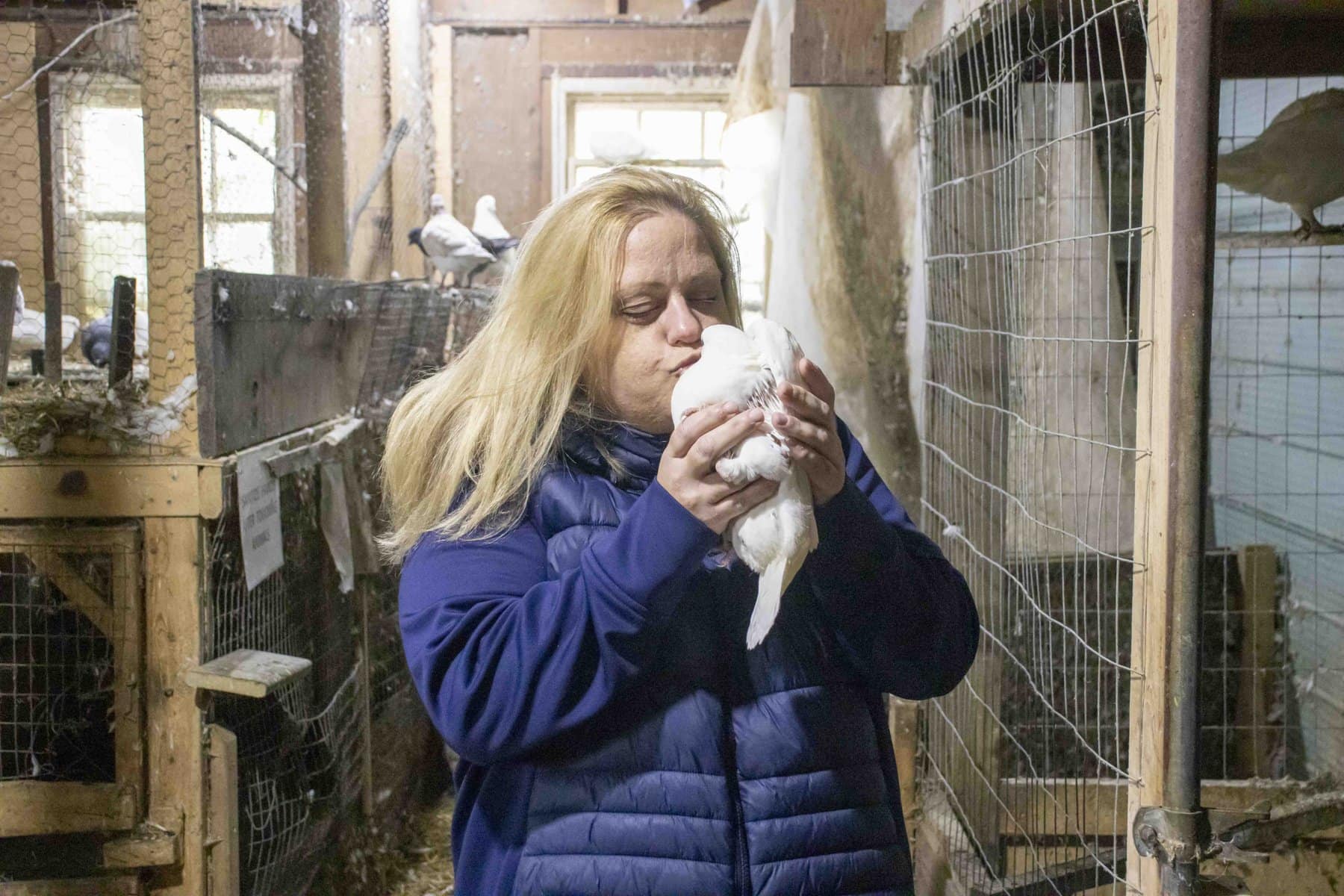Animals have a way of sensing our emotions.
Which is why this fall, the Valhalla Project’s five-day Learn to Live Residential Respite Program made a stop at the farm of Randy Lakeit and Lizzie Salkauskis in Niagara-on-the-Lake for a barnyard visit.
The Valhalla Project Niagara is a non-profit agency that offers programs, guidance and resources to military veterans and first responders who live with post-traumatic stress disorder.
“Animals are very intuitive to energy around (them),” said Graham Bettes, a chaplain and ordained minister for the Valhalla Project and also a volunteer firefighter in Niagara-on-the-Lake.
Bettes served as a police officer for 30 years and also was a sergeant in Canada’s Armed Forces. He was diagnosed with PTSD in 2013, but believes he had it as early as 1991.
Since animals are so in tune with other people’s energy and emotions, the farm visit was a way for participants to become more aware of their own energy.
“So we can start to recognize how we think we may be presenting ourselves,” he said.
Lakeit and Salkauskis have more than 300 animals, including bunnies, pigs, chickens, turkeys, alpacas and even a bull.
“I’ve laughed and smiled more in the last four days than I had in two years,” said Cindy Sowa, who has been a police officer for 27 years.
Sowa experiences anxiety and was diagnosed with PTSD two years ago.
“It’s denial. You know, I just thought I had stress and I was overwhelmed. And just looking for some help and coping,” she said.
“And then I was diagnosed with PTSD and (I) have good days (and) bad days,” she added.
As Helaine Hildley walked around the farm wearing a unicorn onesie, she stopped to see as many animals as she could. Her face lit up as she gave a horse named Thunder some snacks.
Hildley has been a police officer in St. Thomas for 12 years and works on the internet child exploitation squad. She was diagnosed with PTSD about a year ago.
“I came as a participant the first time and got so much out of it that I came back over time. Now I do mentoring,” she said.
This is her ninth time participating in the program.
She found out about the organization though the hashtag #Igotyourback911. The hashtag that was started by St. Thomas officers to help first responders who are struggling with mental health.
“I messaged them and said it (the program) was freaking amazing. And they reposted it. Some other people have come because of them,” she said.
She said her police job caused her a lot of sanctuary trauma, which is when the trauma is caused by the organization itself.
When the system that’s supposed to support you during stressful times doesn’t, that can cause additional trauma.
The field trip part of the program is a chance to reinforce skills and to go out into the world and meet real people, said Bettes.
“One of the symptoms of PTSD is that it completely fills your life with negative emotions – sad, mad and scared, and essentially makes you blind to seeing the positive emotions,” he said.
So visits like this bring them out and help them realize there are smiles to be had, he said.
From day one, participants learn management tools for PTSD and how to cope with it, as well as tools to prevent suicide. Many of the participants stay in touch with each other after the five days are completed.
The program is free and the organization is funded mainly by donations. During the five-day program, participants stay at Cave Springs Camp in Beamsville.
The first Learn to Live program was supposed to run in March 2020, but was delayed because of the pandemic.
They were still able to run one in 2020 and three in 2021. To date, they’ve run 18 programs, eight of which have been online through zoom.
This was the last one of the year, however Bettes hopes to run another five day residential program in January.
“Being here I don’t feel alone any more,” said Sowa.











